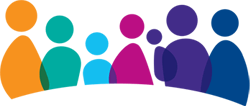We care about the people who come into contact with our services and keeping them safe is very important to us - that is why we have arrangements in place to protect people from abuse. Everybody has a right to be safe and protected from fear of violence and abuse. Children and vulnerable adults may be unable to take care of themselves or be able to protect themselves from harm or exploitation.
What is abuse?
Abuse is what happens if someone does or says something to you which makes you feel scared or upset or someone makes you do something or does something to you even if you tell them to stop. Abuse is when someone tries to take away your rights and choices.
Who can abuse?
Anyone can be an abuser and there could be more than one person. It could be:
- a partner, child or relative, a friend or neighbour - sometimes they can pretend to be your friend so they can abuse you, this is also called Mate Crime. They could also decide to live in your home for illegal purposes such as sex work and drug dealing - this is called cuckooing.
- a paid or a volunteer carer or another service user
- a member of staff or someone in a position of trust
- a stranger
What are the types of abuse?
Physical Abuse – when someone hits, punches, grabs you or restrains you inappropriately.
Sexual Abuse – this is being made to take part in sexual activity when you don’t want to. For children, this may include grooming, sexual exploitation, or activities that involve watching sexual acts, whether or not the child is aware of what is happening.
Emotional or Psychological Abuse – when someone makes you feel
sad, afraid or not important by saying something intimidating, threatening or humiliating to you.
Domestic Abuse – this includes physical, sexual, psychological, financial and emotional abuse by intimate partners or family members. Coercion and Control, Honour Based Violence, Female Genital Mutilation and Forced Marriage would also be included.
Financial/Material Abuse – theft, fraud, exploitation, or misuse of someone else’s finances; not letting you choose how to spend your money.
Modern Slavery/Human Trafficking – you could be held and forced to work against your will. You may have been brought in from overseas or you may be moved around the country.
Child Criminal/Sexual Exploitation – you may receive ’something’ (e.g. food, drugs, alcohol, cigarettes, gifts, accommodation, money) for doing something or completing a task on behalf of another person or group of persons which is usually criminal in nature.
Neglect – is the ongoing failure to meet a child's basic needs and the most common form of child abuse. A child might be left hungry or dirty, or without proper clothing, shelter, supervision or health care.
Self Neglect – you may be neglecting your own personal hygiene, not eating or drinking properly or hoarding.
Discriminatory Abuse – someone may be treating you less favourably and unfairly because of your race, ethnicity, sex, religion, gender, disability or sexual orientation. This is also called Hate Crime.
Organisational Abuse – neglect in care homes, nursing homes or hospitals and you are not being treated with dignity and respect.
Where can abuse happen?
Abuse can happen anywhere and at any time. This could be at home, in a care setting, at a hospital or day centre, at work or at school, on the internet or phone or in a public place.
What can you do?
Take action. No one should have to live with abuse or neglect. Don’t assume that someone else is doing something about the situation. If you are concerned about yourself or a person you know, you can try telling a friend, family member, your partner, a healthcare worker of your GP.
For more information
You could contact the following authorities such as:
- Dudley Children’s Services 0300 555 0050 option 4
- Dudley Adult Social Care Team 0300 555 0055 option 1
- Sandwell Children’s Services 0121 569 3100
- Sandwell Adult Social Care Team 0121 569 2266
- Walsall Adult Social Care Access Team 0300 555 2922
- Walsall Children’s Services 0300 555 2866
- Wolverhampton Children’s Services 01902 555392
- Wolverhampton Adult Social Care 01902 551199
For any concern you consider to be an emergency call 999. For non urgent situations call 101.
Care Quality Commission (CQC) 03000 61 61 61

